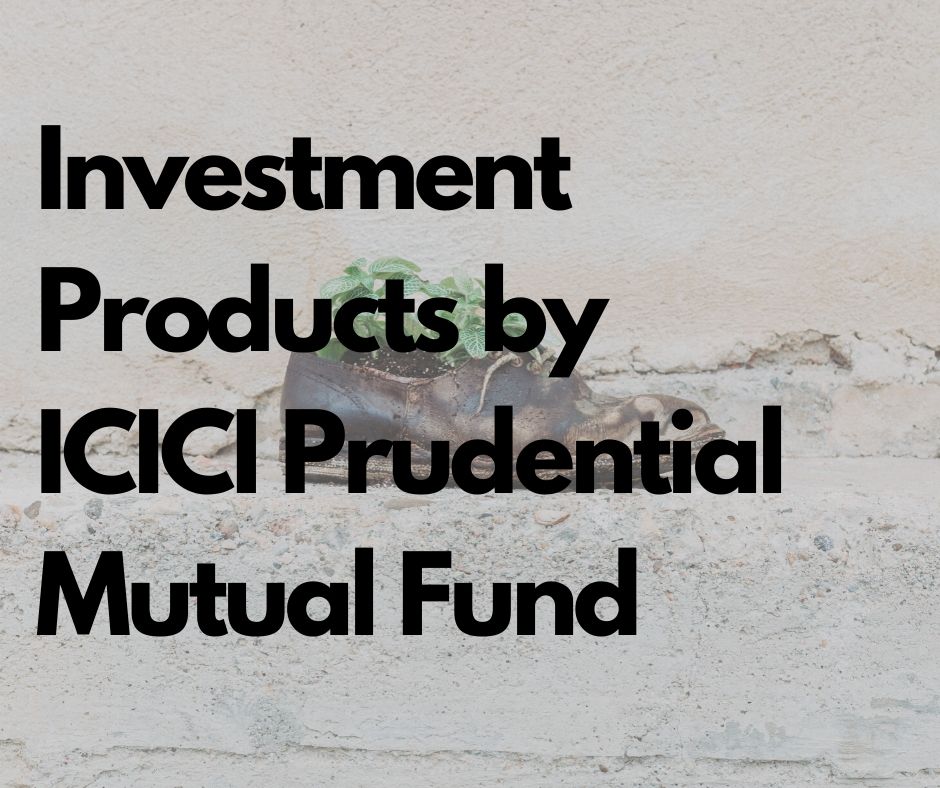ICICI Prudential Mutual Fund | Best Mutual Funds to Invest
- 2 July 2020 | 3826 Views | By Mint2Save

A mutual fund is framed when a company that deals in funds, usually an asset management company pools the investments that have been taken from different individuals. A fund manager deals with the pooled venture by deliberately putting resources into capital advantages to produce the most extreme returns for the financial specialists. Fund directors are experts in the field of account with a brilliant reputation of overseeing speculations and have an inside and out comprehension of business sectors. The fund manager charges cost proportion, which is the yearly maintenance expense to oversee the investments of people. The person who is investing money will get returns through customary profits/premium and capital gains. They can either decide to reinvest the capital gains through a development alternative or gain consistent pay by a method of a dividend choice.
Mutual funds managers or investors have an opportunity to get access to an expertly built portfolio of values, bonds, and different protections. Every investor, along these lines, partakes relatively in the increases or misfortunes of the fund. Mutual funds put resources while maintaining securities, and execution is typically followed as the adjustment in the complete market determined by the collecting execution of the hidden speculations. 
The estimation of the mutual fund organization relies upon the performance it chooses to purchase. In this way, when you buy a share of a fund, you are buying the part of the performance portfolio. Putting resources into a portion of a mutual fund is not the same as putting resources into stock.
Advantages of Mutual funds –
1. Comfort
Putting your money into mutual funds is a paperless and clear procedure. Investors have to analyze the market well before investing and accordingly make investments. Additionally, switching money among assets and portfolios helps in getting returns in accordance with desires.
2. Low beginning investment
You can have a different mutual fund portfolio by contributing as low as Rs 500 every month. You likewise have the alternative to contributing either as a singular amount or a systematic investment plan (SIP). Be that as it may, if you want a difference between lump sum and SIP investments, a SIP is fit for bringing down the general expense of investment while releasing the intensity of compounding.
3. Tax saver
Section 80C gives deduction in tax on explicit monetary instruments, and one of them is a mutual fund. ELSS has become a mainstream tax-saving alternative for Indians over the most recent couple of years, attributable to its better yields and the briefest lock-in time of three years among all Section 80C choices.
4. Proficient management of funds
While investing in mutual funds your money is overseen by a fund supervisor who is upheld by a group of analysts. The manager figures the investment technique for your benefit portion. He/she will have constant access to the money related condition and change your common store portfolio appropriately.
Types of mutual funds –
There are different types of mutual funds and one should always be aware of this. Investing money in the right funds will be beneficial as it will help you to gain more profits. Below mentioned is the list of the different types of funds.
1. Equity Schemes
These assets put your money into equity shares and the goal of this investment is to gain maximum capital over a long period of time. They are related to high risk as they are connected to the profoundly unpredictable securities exchanges however over a long time, they offer great returns. Consequently, financial specialists have a high hunger for a chance to see these plans as a perfect venture choice. Development assets can additionally be ordered into the expanded, segment, and file reserves.
2. Debt Funds
Also known as fixed-salary reserves, they put resources into fixed pay or obligation protections, for example, debentures, corporate securities, business papers, government protections, and different currency advertisement instruments. For the individuals who look for a customary, consistent, and a pay without risk, these funds can be a perfect decision. Overlaid reserves, fluid assets, transient plans, salary assets, and MIPs are the subcategories of debt funds.
3. Balanced Funds
These assets make your investment in debt funds and value shares. Financial specialists can anticipate a normal pay and development simultaneously with these assets. They offer a wise speculation choice for financial specialists who are prepared to face moderate challenges over the medium or long haul.
4. Tax Saving Funds
Anyone hoping to develop their capital while likewise sparing tax can select this tax-saving fund. Financial specialists can get your tax refunds under Section 80C of the Income Tax Act, 1961 through expense sparing assets, otherwise called equity-linked savings schemes. Learn more tax saving schemes: Hacking Maximum Benefits out of ELSS Schemes.
5. Exchange-Traded Funds (ETFs)
An ETF exchanges a stock trade and claims a crate of benefits, for example, securities, gold bars, oil fates, outside cash, and so on. It offers the adaptability of buying and selling units on the stock trades for the duration of the day.
Open-ended plans
In an open-ended plan, units are purchased and sold persistently and subsequently, permit financial specialists to enter and exit as per their accommodation. The buy and offer of assets are done at the Net Asset Value (NAV).
Close-ended plans
In this sort of plan, the unit capital is fixed and just a particular number of units can be sold. The units in a nearby finished plan can’t be purchased by the financial specialist after the New Fund Offer (NFO) has passed which implies they can’t leave the plan before the finish of the term.
Products of ICICI Mutual funds
- ICICI Prudential Regular Savings Fund Direct-Growth
This store has reliably performed over the benchmark in the Conservative section. It has given an excellent 6.24% yearly returns over the most recent three years. In the earlier year, it conveyed 2.95% returns. These funds are more popular and have performed better than other funds. This store has performed superior to different assets in a similar classification. The base SIP venture sum required to put resources into this plan is ₹100.
- ICICI Prudential Credit Risk Fund Direct Plan-Growth
This type of investment product has reliably performed over the benchmark in the Credit Risk fragment. It has given an estimable 8.36% yearly returns over the most recent three years. In the earlier year, it conveyed 9.41% returns. It is very popular in leading investors.
- ICICI Prudential Credit Risk Fund Direct Plan-Growth
This fund has reliably performed over the benchmark in the Credit Risk portion. It has given an admirable 8.36% per year which is the most over the three years. In the earlier year, it conveyed 9.41% returns. It is one of the most outstanding Hybrid common assets in India.
- ICICI Prudential Floating Interest Fund Direct Plan-Growth
This mutual fund has reliably performed over the benchmark in the Floater fragment. It has given an admirable 7.87% yearly returns over the most recent three years. In the earlier year, it conveyed 8.6% returns. It is one of the most eminent Debt shared assets in India.
- ICICI Prudential Corporate Bond Fund Direct Plan-Growth
This type of fund has reliably performed over the benchmark in the Corporate Bond portion. It has given an honorable 8.33% yearly returns over the most recent three years. In the earlier year, it conveyed 10.7% returns. The Bond fund’s direct plan growth has performed superior to different assets in a similar class. The base SIP venture sum required to put resources into this plan is ₹1,000. It is one of the most striking Debt shared assets in India.
Which is the best Icici Prudential Mutual Fund?
This is indeed a difficult question to answer as ICICI prudential mutual fund has a plethora of mutual funds and products do vary as per age, risk-taking tendency, and objective of investment. For instance, youth might be interested in an equity-based mutual fund, while someone in his mid-40s would prefer a debt or a hybrid fund.
ICICI is the biggest asset management company and has the largest funds. Many individuals have invested in this company and gain maximum gains. If you are a beginner and planning to invest in a mutual fund, ICICI is the best option to invest in.









